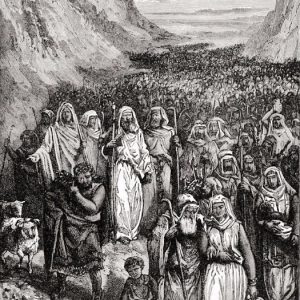
Thank you for joining us for our five days per week wisdom and legacy building podcast. Today is Day 816 of our trek, and it is Wisdom Wednesday. The past several weeks on Wednesday we have been focusing on interpreting current events through a Biblical Worldview.
To establish a Biblical worldview, it is important that you also have a proper understanding of God’s word. Especially in our western cultures, we do not fully understand the Scriptures from the mindset and culture of the authors. In order to help us all have a better understanding of God’s word, I would like to invest the next several weeks reviewing a series of essays from one of today’s most prominent Hebrew Scholars Dr. Micheal S. Heiser which he has compiled into a book titled I Dare You Not to Bore Me with the Bible.
We are broadcasting from our studio at The Big House in Marietta, Ohio. If you ever invest much time around teenagers, and even adults for that matter, you will soon realize that within a certain group, they will start acting very similar, dressing the same, walking the same, using the same vernacular, and even taking on many of the same practices and traditions.
It was not any different when God called Abraham as a chosen person to start a new nation. Abraham, Issac, Jacob, and indeed the entire nation of Israel had many of the same practices, habits, and traditions of the surrounding nations and people groups. We in our western culture and society through the millennium have morphed into a much different mindset and practice. Because of this and the practices we have adopted, it is difficult to take on the mindset of the ancient Israelites and the surrounding nations.
So our essay for today is titled…

Dr. Heiser explains his mindset change came during graduate schools when he took a course the Ugaritic language, which came from the Persian area and dates back prior to the calling of Abraham. Heiser puts it this way, “Cuneiform tablets changed my life. I’m not kidding. As I look back on my 15 years of graduate school in biblical studies, the turning point in how I view the Bible was my course in Ugaritic, a cuneiform language very similar to biblical Hebrew. This class compelled me to transform how to ‘read the Bible in context’ from a naive platitude to an issue of spiritual...